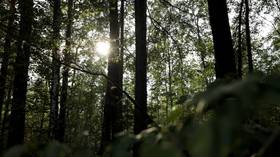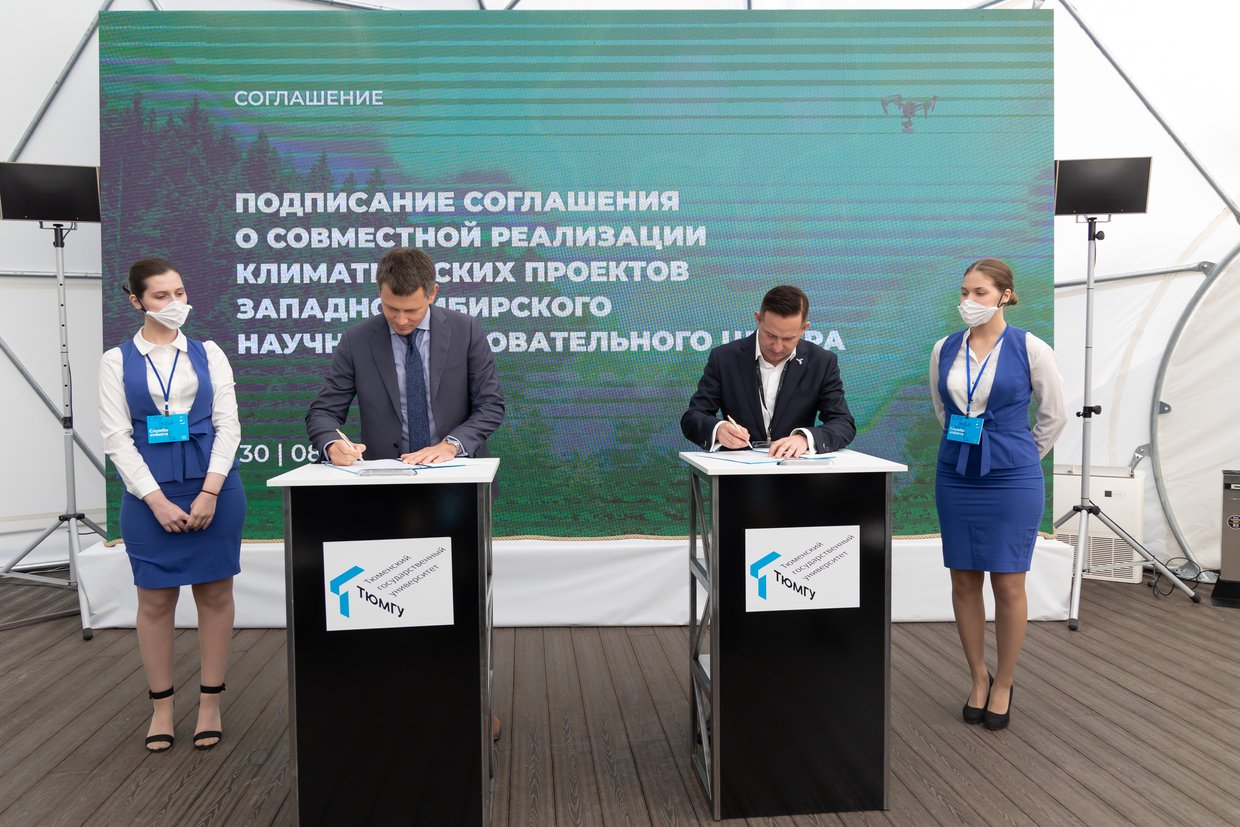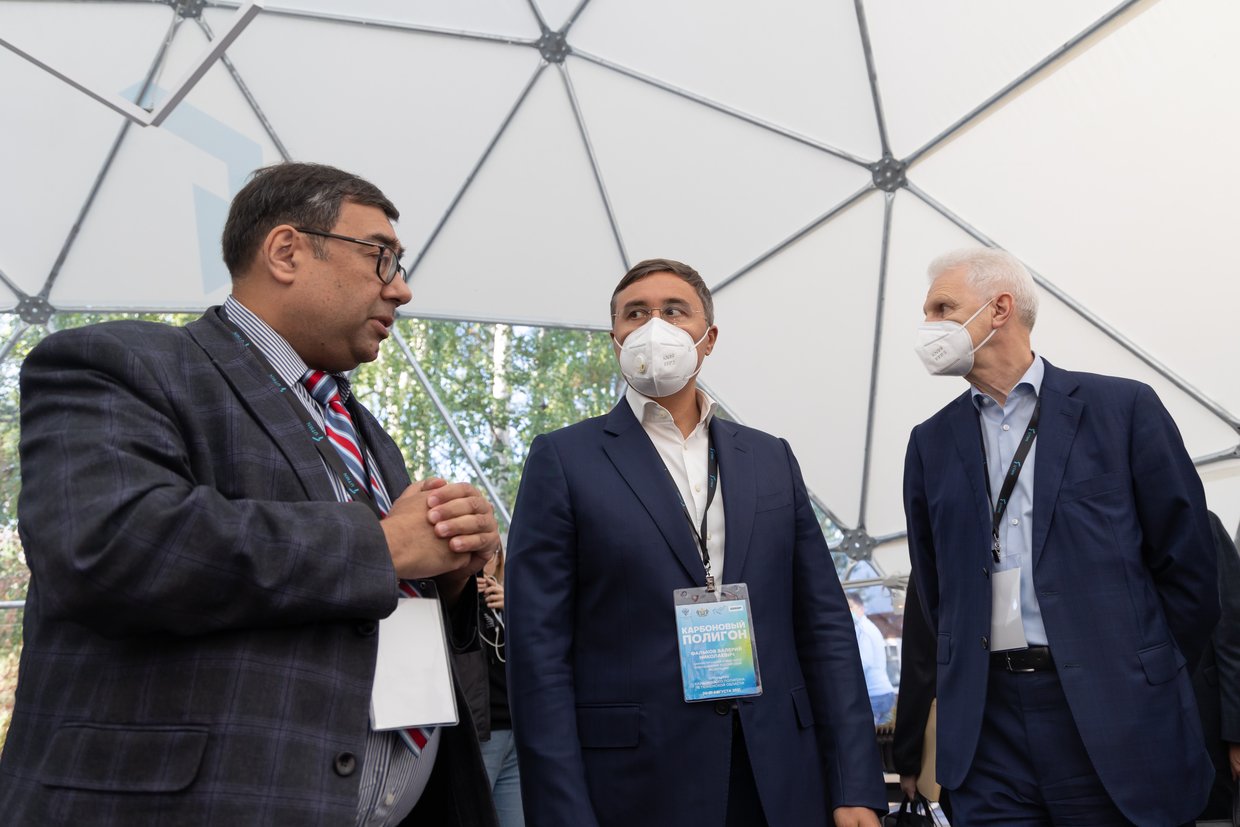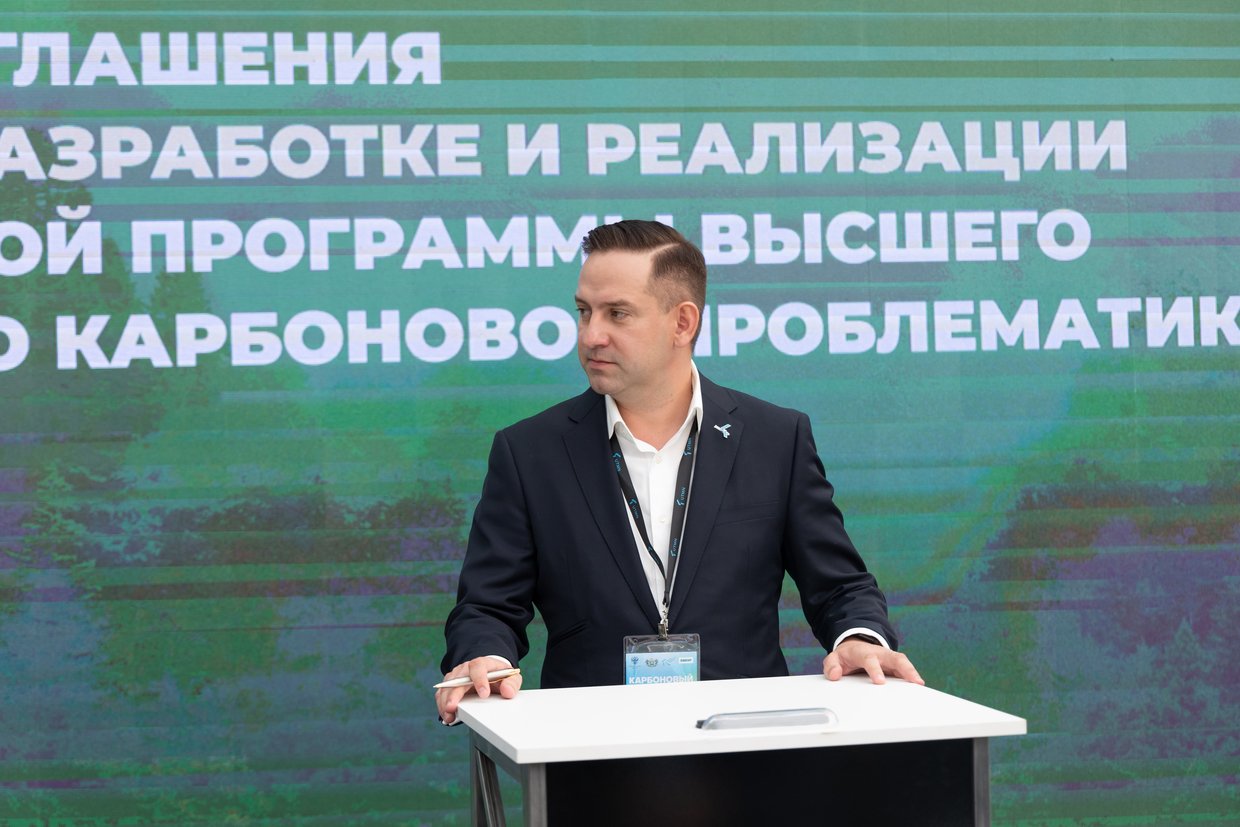“National system of greenhouse gas monitoring”: first carbon test site opens in Tyumen Region

Researching carbon balance: first carbon test site opens in Tyumen Region
The first Russian carbon test site opened in the Tyumen Region. This area has a unique ecosystem, which allows scientists to research carbon dioxide emissions and the carbon balance. The data from the Tyumen test site will be used in industries like reforestation and agriculture, as well as carbon farming that helps increase the rate at which carbon is sequestered into soil and plant material. The Ministry of Science and Higher Education plans to establish another eight carbon test sites in Russia.
The Tyumen carbon test site officially opened on August 30. Presidential Aide Andrey Fursenko, Minister of Science and Higher Education Valery Falkov, Tyumen Governor Alexander Moor, top scientists from the Russian Academy of Sciences, as well as various Russian and international research institutes and universities attended the ceremony.

The carbon test site is located on Tyumen State University’s campus, at Lake Kuchak. This research center will focus on analyzing the area and studying its biomass, plant species and soil. The data is gathered by UAVs and ground monitoring systems. The results will be useful for reforestation efforts, agricultural projects, and carbon farming that helps absorb carbon dioxide at an increased rate.
Landmark project
In February 2021, the Ministry of Science and Higher Education decided to establish carbon test sites in Russia as part of Year of Science and Technology.
“Carbon test sites will become our landmark project this year as the first step in creating the national system of greenhouse gas monitoring,” said Minister of Science and Higher Education Valery Falkov at a press conference hosted by the Rossiya Segodnya international news agency.
The minister explained that carbon test sites are specifically selected ecosystems where scientists can study emissions and the carbon balance. This research helps develop and adjust the technology used in monitoring of ground and underground phytomass (overall mass of plant species. – RT), creating mathematical models for the carbon balance and climate.
On July 15, the Expert Council on Carbon Balance Technologies under the Russian Ministry of Science and Higher Education approved a number of programs to create and operate carbon test sites in seven federal subjects, namely the Chechen Republic, the Krasnodar Territory, the Kaliningrad Region, the Novosibirsk Region, the Sakhalin Region, the Sverdlovsk Region, and the Tyumen Region. Later the Council also approved programs to construct carbon test sites in the Moscow Region and the Republic of Tatarstan.

The Expert Council has carefully examined every program, all of which differ both in terms of carbon balance assessment methods and the type of ecosystem to be studied.
The Minister of Science and Higher Education believes that a lot has been done in the previous six months to set up a nation-wide network of carbon test sites. This includes creating the Expertise and Methodology Center, approving a standardized program for operating carbon test sites and compiling a comprehensive list of the necessary equipment.
“The Ministry and scientific research in general play a crucial role in the energy source transition process and national climate-related projects. We’re now launching large-scale long-term projects, and there are exciting things ahead of us. But first, let’s finish what we started, setting a good pace and implementing it in a highly organized, methodologically and scientifically sound way, so that we see tangible results both domestically and internationally,” Valery Falkov said.
Plans for the future
The Expert Council also approved the carbon test site construction program submitted by the University of Tyumen’s team. Council members praised its thorough approach, as well as the foundation that the University has built in the field of climate change, farming and biodiversity research. To implement this program, the University of Tyumen will partner with SIBUR petrochemicals company and a number of other tech companies.

University president Ivan Romanchuk said that the University of Tyumen will be coordinating the network of carbon test sites run by the West Siberian Interregional Research and Education Center (REC). In addition to that, the University has close ties with foreign schools and will serve as a national training and education center for Russian specialists involved in carbon-related projects.
“We are introducing new master’s programs aimed at training world-class professionals and researchers who would tackle the challenges of curbing carbon emissions with green technologies,” Mr. Romanchuk added.












